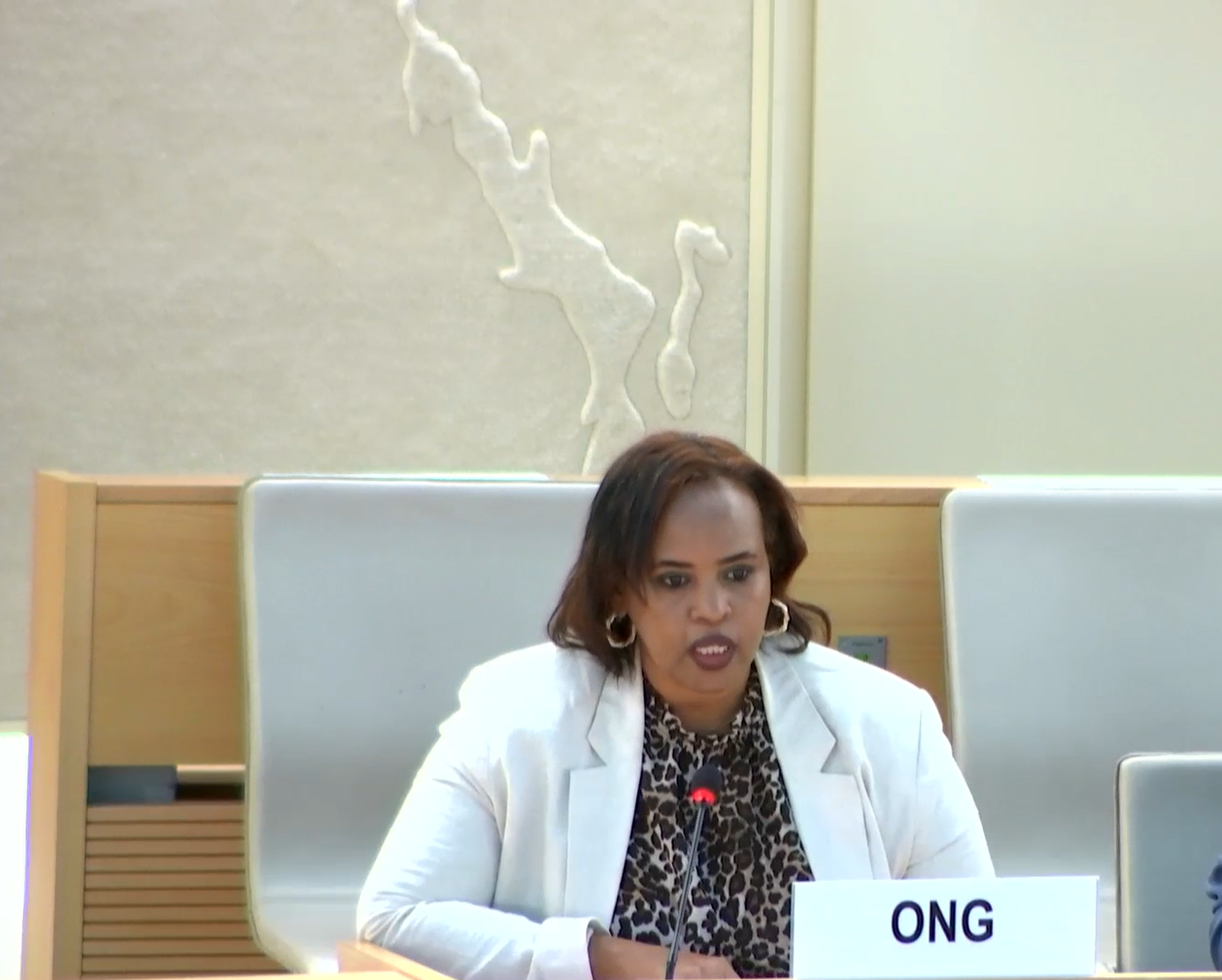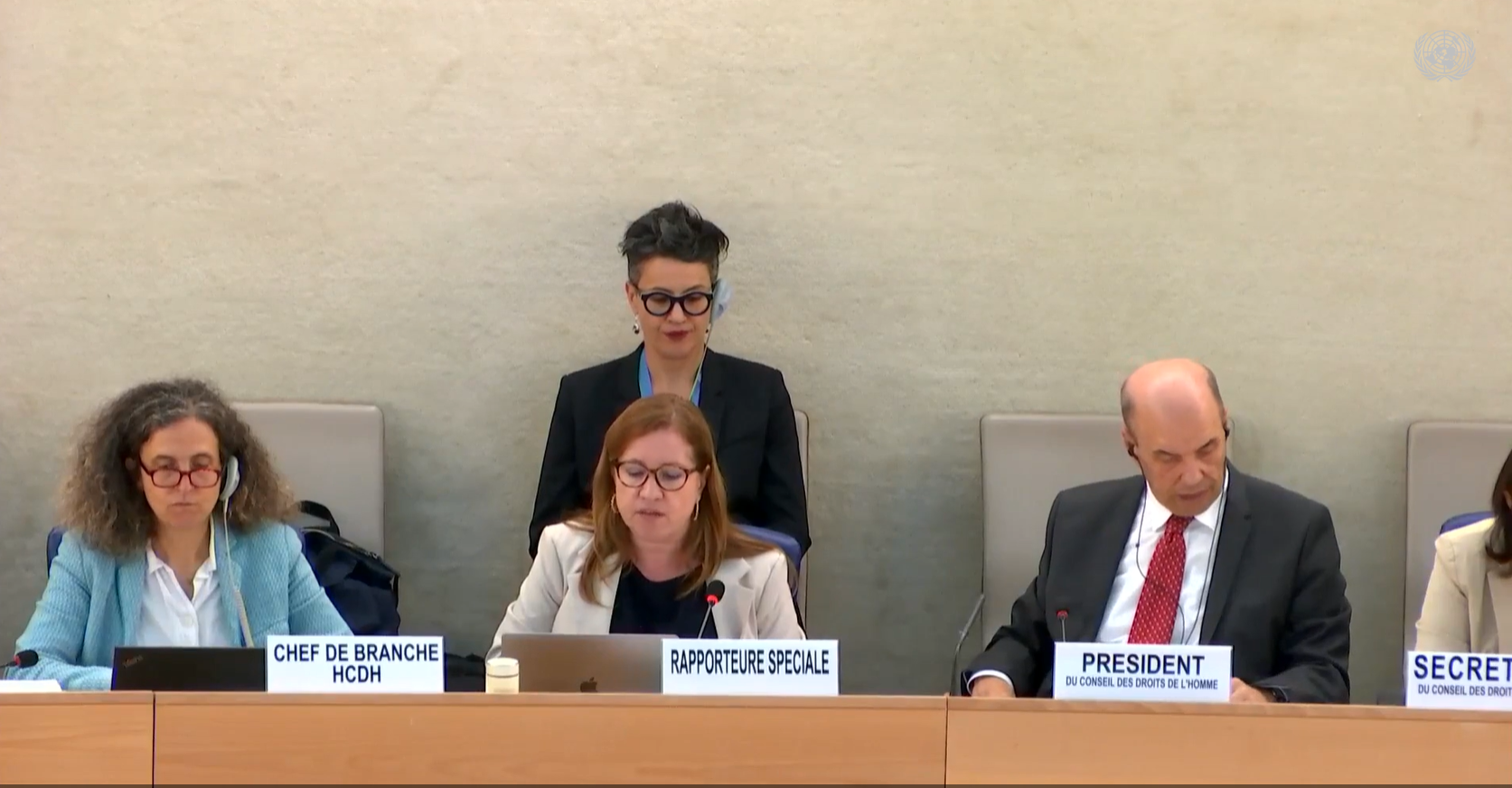
Sudan: Protect civilians, end war crimes against them
The international community must fulfill its obligation to protect civilians facing war crimes.
France has been called upon to reverse its ban on the hijab and to take measures to address racial discrimination and profiling during an international review of its human rights record.
The Universal Periodic Review (UPR) of France opened the 15th session of the UPR on 21 January 2013. It was the first session held under the newly elected UN Human Rights Council president, Mr Remigiusz Henczel.
The review recognised that while France has made significant progress in the realisation of women’s rights, a range of human rights problems have persisted since France’s last review in 2008, including police violence, discrimination against Roma people, and inhumane conditions of detention.
Positive Developments
In his opening remarks, France’s Ambassador for Human Rights, Mr Francois Zimeray, emphasised France’s historical and national commitment to human rights, and recent steps taken to further protect fundamental rights and freedoms. He particularly focused on major constitutional reforms that have broadened and strengthened legal complaints mechanisms for those whose rights have been violated. Mr Zimeray also described steps taken to combat issues such as the excessive use of force by police, and violence against women.
State responses to France’s report were generally positive. Malaysia, Namibia, and Germany commended the country on the successful implementation of a number of recommendations from the first review under the UPR, including the ratification of the Convention on the Rights of Persons with Disabilities and the Convention on Enforced Disappearances.
Issues of Concern
Despite these improvements, France was strongly criticised on a number of issues. Many of these concerns were also raised in France’s first review in 2008.
Racial and religious discrimination and profiling
One such issue was the controversial ban on the wearing of the hijab in public, as well as in private schools. Sudan, Egypt and the United States urged France to repeal the ban, noting its incompatibility with the rights to freedom of religion and non-discrimination. India condemned the expulsion of an Indian student from school for wearing a headscarf; others, such as Indonesia and Thailand, implied that the ban is both racist and Islamophobic. Mr Zimeray responded by asserting the importance of France’s secular constitution, as well as the interests of public safety, and implyied that the ban would not be repealed.
Racism more generally was a matter of concern to most States, and many recommendations echoed those made at the first cycle review. Costa Rica, Morocco, the Russian Federation, and Guatemala recommended that France take concrete measures to eliminate racist discourse from the media and politics, while other states highlighted that people of North African and Arabic origins continue to face discrimination, harassment, and exclusion.
Conduct of police and security forces
Many states also raised concern as to racial profiling and the use of excessive force by police and security forces, particularly against racial and religious minorities. Norway, Mexico, India, and Tunisia called for an end to racial profiling, while other States were concerned that excessive force – including through the use of weapons such as Tasers – is being used primarily against young men of certain ethnic backgrounds and migrants. The Russian Federation strongly recommended investigation into any allegations of ill-treatment, and Belarus and Tunisia urged adherence to proportional use of force in dealing with criminals and detainees.
Conditions of detention
France’s prison system was also strongly criticised; overcrowding and poor living conditions were condemned by the United Kingdom, the United States, Ecuador, and Australia. Each State asked France to take measures to increase the allocation of resources in line with International Covenant on Civil and Political Rights (ICCPR) obligations.
Minority and migrant rights
A majority of States voiced concern as to the forcible eviction of the Roma people. While this issue was not raised in France’s first review, recent incidents of expulsion of communities from their camps has increased awareness of the inequalities faced by the Roma in France. Japan and the United States welcomed efforts to eliminate such evictions, but urged fuller alignment of France’s policies on Roma communities with international human rights law. Namibia, the Russian Federation and Germany were concerned by more general discrimination against the Roma with regards to education, healthcare, and employment, while the Republic of Korea recommended that France take more concrete steps to integrate the group into French society. Mr Zimeray welcomed the recommendations, but made it clear that France does not recognise the existence of groups with special rights, and that therefore the Roma are also ‘expected to comply with the law’.
Migrants make up a significant proportion of France’s population, and many States urged greater protection for this vulnerable group. Paraguay, Burkina Faso, and Argentina recommended that France ratify the Convention on Migrant Workers (CMW) as soon as possible, as well as ILO Convention 169 on the rights of indigenous and tribal peoples. The Russian Federation, the Philippines, New Zealand, and Mauritania recommended that more efforts be made to allow greater social integration of migrants, particularly women, into French society.
Other recommendations
Other recommendations included that France should:
France was however commended by Senegal, Moldova, and Libya for its creation of the working group on unaccompanied migrant minors, who represent a particularly vulnerable group, as well as the work of the Ministry for Women in its on-going establishment of the national observatory on violence against women.
France received a total of 165 recommendations. At the conclusion of the review on 25 January, the French delegation stated that it would consider and respond to all 165 recommendations no later than the 23rd session of the Human Rights Council, which is scheduled from 27 May to 14 June 2013.
Michael Ineichen is a Manager and Rebecca McKinnon is an Intern with the International Service for Human Rights. To follow developments in the UPR and at the Human Rights Council as they happen, follow us on Twitter: @ISHRglobal.

The international community must fulfill its obligation to protect civilians facing war crimes.

In its report to the UN Human Rights Council, the Fact-Finding Mission on Sudan detailed the immense suffering of the Sudanese people, concluding that the Sudanese Armed Forces and the Rapid Support Forces and their allies are responsible for large-scale violations, many of which amount to international crimes.

Upon presenting her report on displacement and climate change at the 56th session of the Human Rights Council, the Special Rapporteur on Internally Displaced Persons (IDPs) encouraged Member States to integrate human rights and support for defenders in efforts to tackle the needs of IDPs.